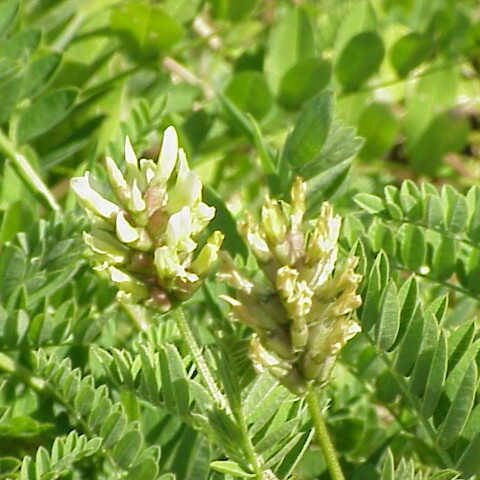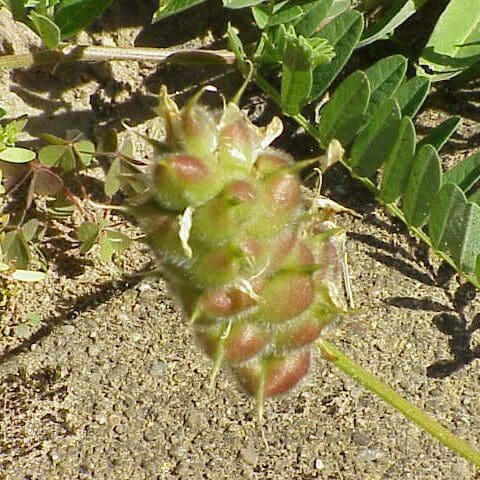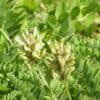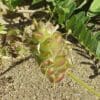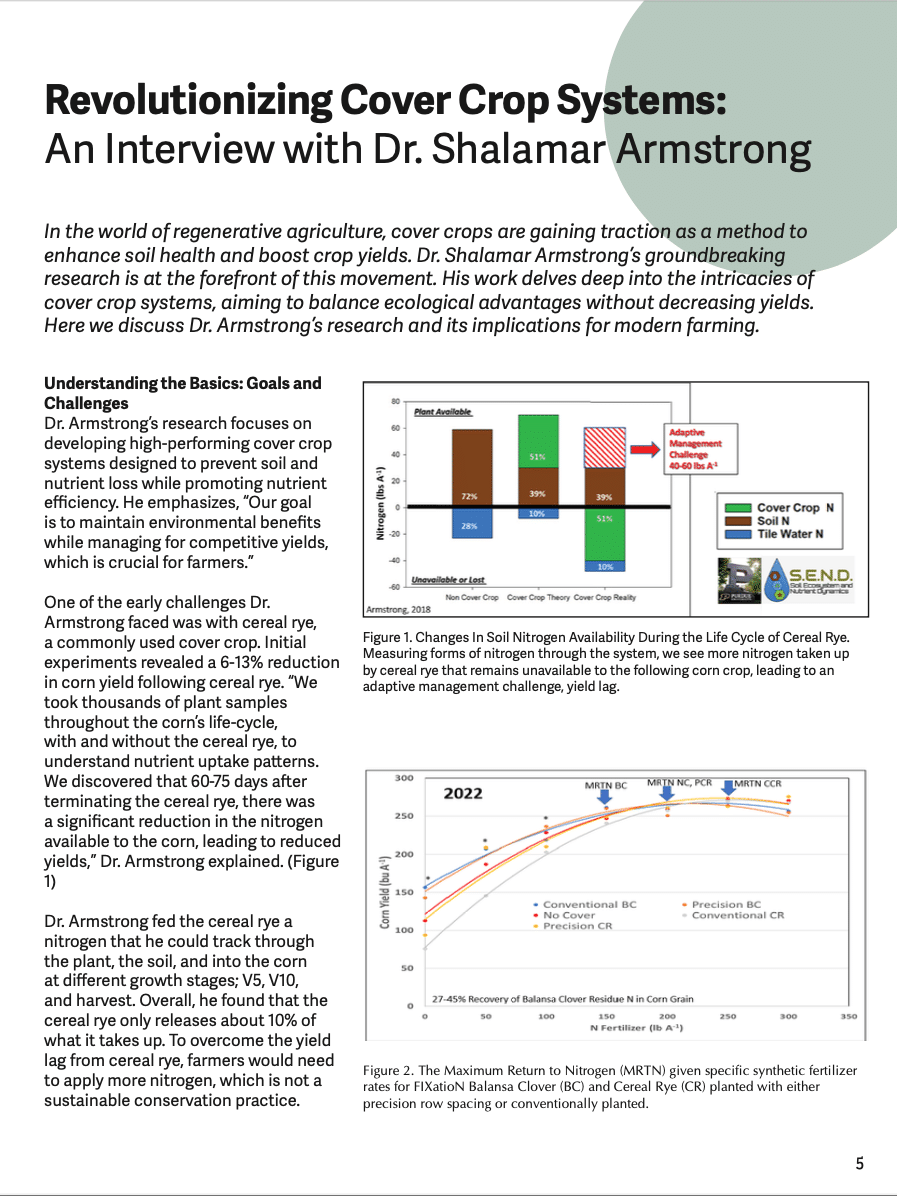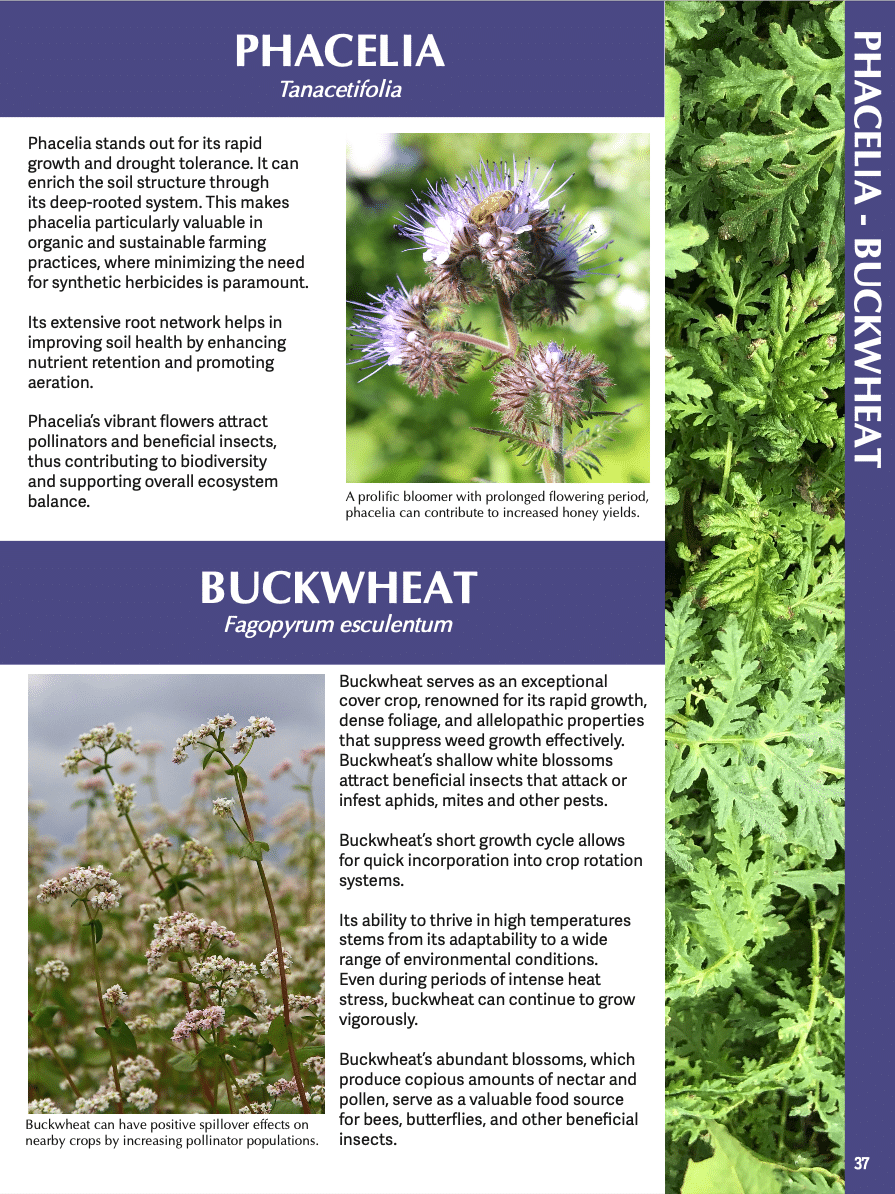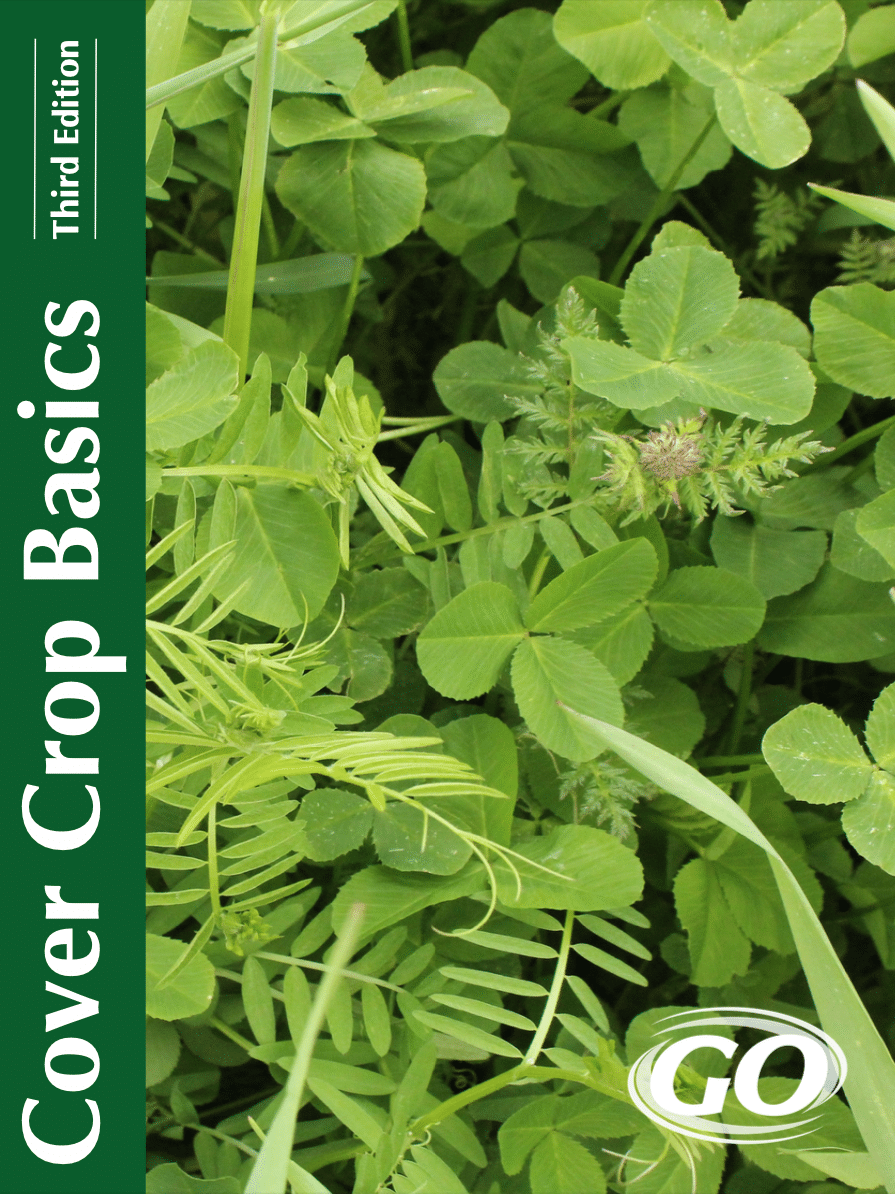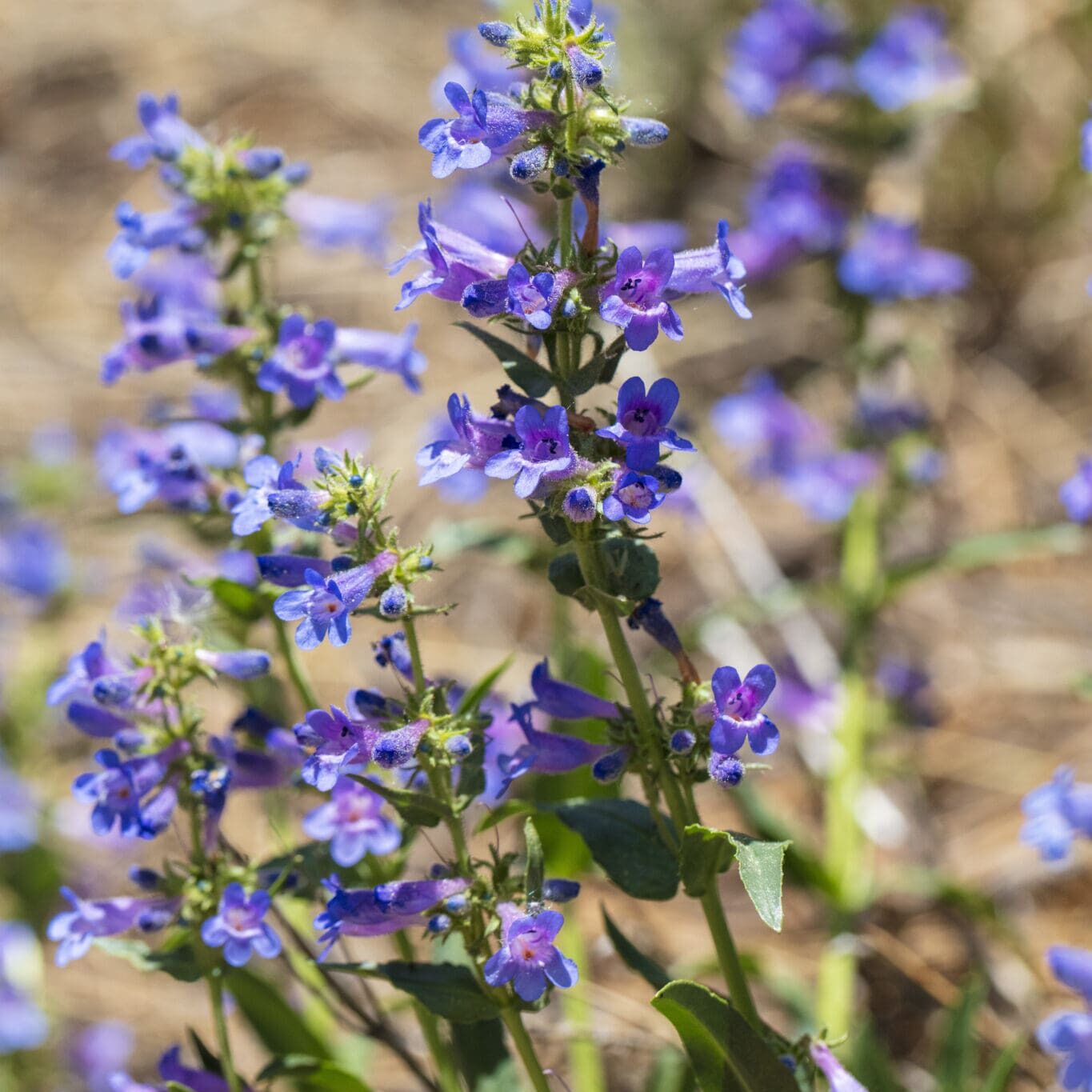Cicer Milkvetch
- Long-lived, perennial, non-bloat legume
- Vigorous creeping roots
- Abundant foliage and showy flowers
- Ideal cover for areas around summer homes, campgrounds
- Comparable to alfalfa in areas with longer growing seasons
Cicer Milkvetch Seed & Plant Description
Cicer milkvetch (Astragalus cicer) is a long-lived, perennial, non-bloat legume. It has vigorous creeping roots or rhizomes. Cicer milkvetch is native to moist places along streams and ditches of Europe from Finland and Sweden to Spain and east to Russia. The species is now established in pinyon-juniper, sagebrush, mountain shrub and aspen communities in the western United States. As a beautification species its abundant foliage and showy flowers makes cicer milkvetch (Astragalus cicer) an ideal vegetative cover for areas around summer homes and campgrounds.
Cicer milkvetch has a very wide range of adaptation but is best adapted to the Rocky Mountain region. Trials including cicer milkvetch have shown that the species has good to excellent performance on coastal areas and also in the Central Plains west to the Cascade-Sierra ranges.
Cicer milkvetch will grow in soils of all textures from clays to sands, but best performance comes from plants grown on moderately coarse textured soils. It is adapted to slightly acidic to slightly alkaline soils with pH levels of 6.0 to 8.1. The species is moderately salt tolerant. It does well on poor, disturbed soils making it useful for critical area plantings.
Cicer milkvetch (Astragalus cicer) is successful in grass mixtures on streambanks, road cuts, mine spoils, and as a cover crop in orchards and windbreaks. Its extensive and prolific root system holds soil, and provides quick recovery and rapid growth in critical area plantings. Its nitrogen fixing ability also provides nitrogen to other species planted in reclamation mixtures. It is considered one of the better legumes used in revegetating strip mines at high elevations. It is better suited for wildlife than alfalfa due to its non-bloat nature.
Cicer Milkvetch as Forage and Cover Crop
Cicer has many qualities that make it a viable choice as a non-bloat legume for hay or pasture. Yields of cicer milkvetch are generally comparable to those of alfalfa in areas with longer growing seasons. Moisture content is 4 to 8% higher than that of alfalfa or sainfoin, and protein levels of 15 to 30% equal or exceed other legumes. The high protein content of cicer milkvetch is due, in part, to the high leaf to stem ratio (approximately 40% greater than alfalfa) and its ability to retain leaves during drying and baling. It has not reported that Cicer Milkvetch causes bloating. Cicer milkvetch is not as palatable to grazing heifers as alfalfa, birdsfoot trefoil or sainfoin. It is also less acceptable to sheep than alfalfa, birdsfoot trefoil and red clover.
Stands of cicer resist overgrazing because of its vigorous sod forming rhizomes. Recovery from grazing is rapid but recovery after cutting for hay is slow. Close grazing stimulates growth and results in increased stand density.
A study in Laramie, Wyoming showed more pounds of beef was produced on Lutana cicer milkvetch compared to Eski sainfoin. Cicer milkvetch pasture improved each year over the four years of the study. Beef yield increases corresponded with the increase in forage.
Cicer Milkvetch for Wildlife
Deer, elk and antelope have been documented eating cicer milkvetch year round, although it is less attractive than alfalfa and sainfoin. Small birds, deer, rabbit, sage grouse and pheasants will eat the seeds. Nutritional values for cicer milkvetch compare to other forage legumes such as alfalfa, birdsfoot trefoil and sainfoin. Cicer milkvetch has higher leaf to stem ratio which equates to higher invitro dry matter digestibility. It retains leaves longer in season than alfalfa, birdsfoot trefoil or sainfoin.
This plant is primarily pollinated by bumble bees but may also be visited by other bee species including the European honey bees and leaf cutter bees. All classes of livestock will eat cicer as hay or pasture. Antelope, deer and elk will also eat nicer milk vetch. Plants contain no harmful alkaloids, nor do they accumulate toxic amounts of selenium.
***Click on the “Quick Plant Facts” tab above for more information.
Cover Crop Basics
An informative, authoritative guide to cover crops. Very comprehensive, and covers all geographic regions of the USA. Published by GO Seed.
Who is Great Basin Seed?
Great Basin Seed is a seed company that specializes in seed sales and consultation for home, ranch, farm, range and reclamation. We have been a leader in the seed industry since 1974.
Our History
We've been in the seed business since 1974.
What We Offer
We offer seed for home, farm, ranch, range and reclamation projects.
Meet the Gang
We have the best employees in the world! We are proud of the work they do, and trust them to serve you!
Right: Company founder Lloyd and his wife Paula Stevens in a wildflower seed production field circa 1977
Helpful Links
Additional information about this product can be found on the academic websites linked below.
Synonyms
Many plants have more than one common and scientific name. We've listed a few of them below.
- Cicer Milkvetch
- Astragalus cicer L.
- Chickpea Milkvetch
Quick Plant Facts
| Common Name: | Cicer Milkvetch |
|---|---|
| Scientific Name: | |
| Lifespan: | |
| Origin: | |
| Plant Type: | |
| pH Tolerance: | |
| Seed Count | 145,000 seeds/lb. |
| Growth Height: | |
| Min. Precipitation | 12-18 Inches |
| Max Sowing Depth: | |
| Sowing Rate | 20-25 PLS lbs. per Acre |
| Growth Season: | |
| Sun & Shade Tolerance: | Full Sun |
| Available Varieties: | |
| Zone Map | comingsoon.gif |
| Hardiness Zones: |
